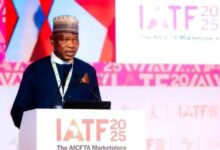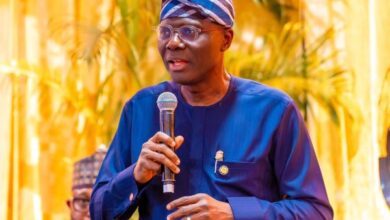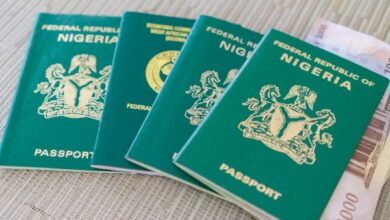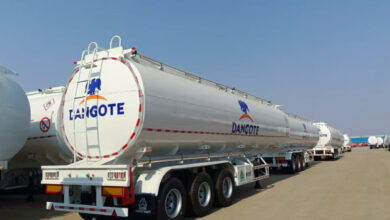BRANDPERSONALITY: Experiential Marketing Needs More of Human Perspective
Max Lenderman, a pioneer in the field of experiential marketing paid his first visit to Nigeria to deliver a lecture at the first experiential marketing conference recently held in Lagos. In this interview with BRANDPOWER , Max bared his mind on what his impressions of experiential marketing in Nigeria, areas of possible improvement, and most notably a word of advice for the industry in Nigeria. Ayomide Oriade who was at the workshop, presents the report:
From the information you have how would you describe experiential marketing in Nigeria?
I have been in the country for several hours and I have lived in Africa for quite a bit, and I do find that there are lots of applications that exist here and around the world that are experiential in nature. Driving from the airport down here, you see stores and all the little kiosks that have no advertising budgets but still customers are coming to them. Things of that nature are naturally experiential because you don’t rely on money for traditional advertising like television or print. To get customers in, you will have to rely on something more than traditional advertising. The platform is there already and from the contribution of the attendees, you can see that it’s not a new thing here.
From the little you have seen on ground here, what aspects do you think we can improve on?
That’s a good one. I think one of the places you can improve is at the retail. I also think customer services are another aspect you can improve on. If you can create great experiences in terms of customer service; creating engagement between people, that would elevate your brand higher than other brands. For instance in mobile, I understand that there’s a lot of bad network connection here, but how do you create the impression that this mobile company cares more about me? You probably not going to get that with traditional advertising: you are going to get it with some sort of experiential art. And I think people such as customer service representatives, the more training they have, the more ability they have to create more experiences. So customer services becomes naturally experiential because the better experiences you have with the people who represent that brand, the more likely you are going to be loyal to that brand.
Is there a certain goods or services for which you can apply experiential marketing?
I think expensive; luxury goods will require more of experiential. You are not going to buy a car without driving it. Television and other electronics. You want to go to the store, try it out and see how it looks and how it operates. I think expensive goods are more appropriate for experiences. But also the same time, consumer packaged goods: fast moving package goods like candy bars, sodas, and beers. I think there’s so much competition in those areas: and to stand out, you will need more than the conventional advertising. You will need to do something bigger and I think it’s more than just trucks and people dancing. I think sponsorship is key. If you can align yourself with the right properties, sport team, life style brand; the more partnership you have with them, that becomes experiential itself.
How can we assess the impact of experiential marketing?
The thing with experiential marketing is that it deals with more of a long term play. You might want to measure the amount of goods you’ve moved in the course of your experiential campaign. I think the qualitative of measurement is what is lacking in most markets. Like you said, they tend to focus more on how much stuff is sold or moved rather than focus on what is the brand perception and how that perception changed. A little bit more qualitative return on investment survey is needed in order to create a more comprehensive picture of brand value and how it has changed in people’s eyes three or five years down the line.
Let’s take it from a global perspective, what sort of training does it take for someone to be an experiential marketing strategist?
What I find interesting is that the best experiential marketers come from a journalistic background. You need the sense of human empathy to do that. A lot of traditional advert executives who write commercials are good writers and they have a good way of manipulating words and phrases to bring uniqueness or fun at times. But experiential marketers need to have more of human perspective. You need to know what makes people act. There is psychology and observation is involved; the ability to view from various perspectives and come up with a good, communicative and connecting idea. That’s why journalists are very good at experiential marketing because they combine both sides while the traditional advert executives are more concerned about the words and pictures.
What attributes does a good experiential marketer ought to posses?
Experiential marketing is more in line with appreciation of a global view point. For anything especially in creative field, you need to believe in your works, in what you are saying and be true to it, and that comes with fearlessness as well. From that perspective, I think there’s a little bit of a cross over between the notion of believing what you are doing and translating it to other people so that they believe as well. Marketers who believe in what they are and what they sell, tend to attract more loyalty for their brands than those who just want to sell.
Coming from a more experienced background of experiential marketing, what is your word of advice for the industry in Nigeria?
One real word of advice is don’t try to be like anyone else. Try to find your own true voice and realize that there are a lot of inherent trends in the culture here. At times we try to source from other cultures and bake it into ours but that usually backfires. You have to have a lot of faith in what you are and who you are, and that translates into the work that you put out into the market place.
– See more at: https://brandeconomy.com.ng/BRANDPERSONALITY-Experiential-marketing-needs-more-of-human-perspective.html#sthash.9YGrUfjt.dpuf












